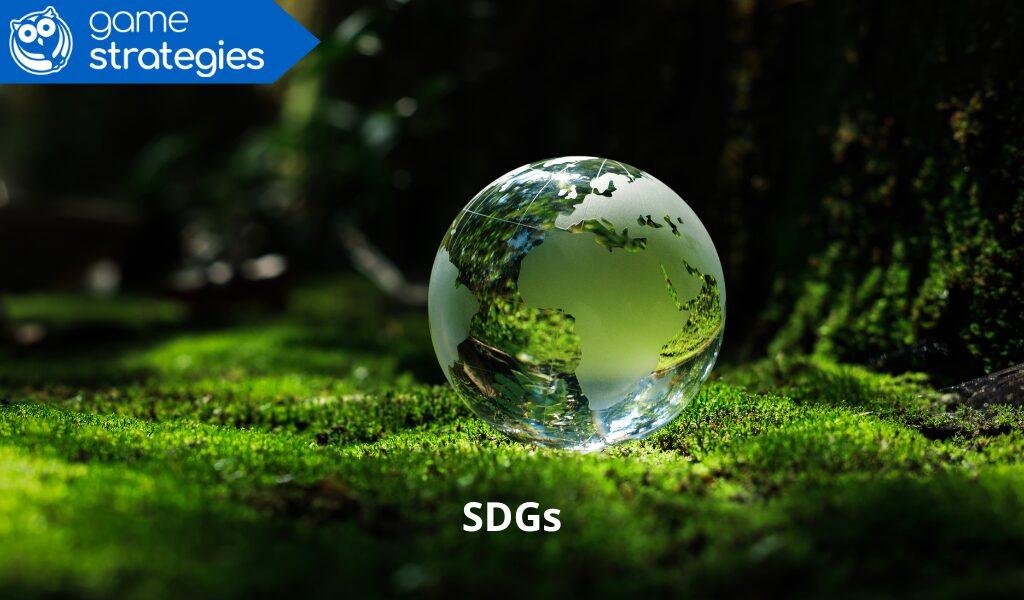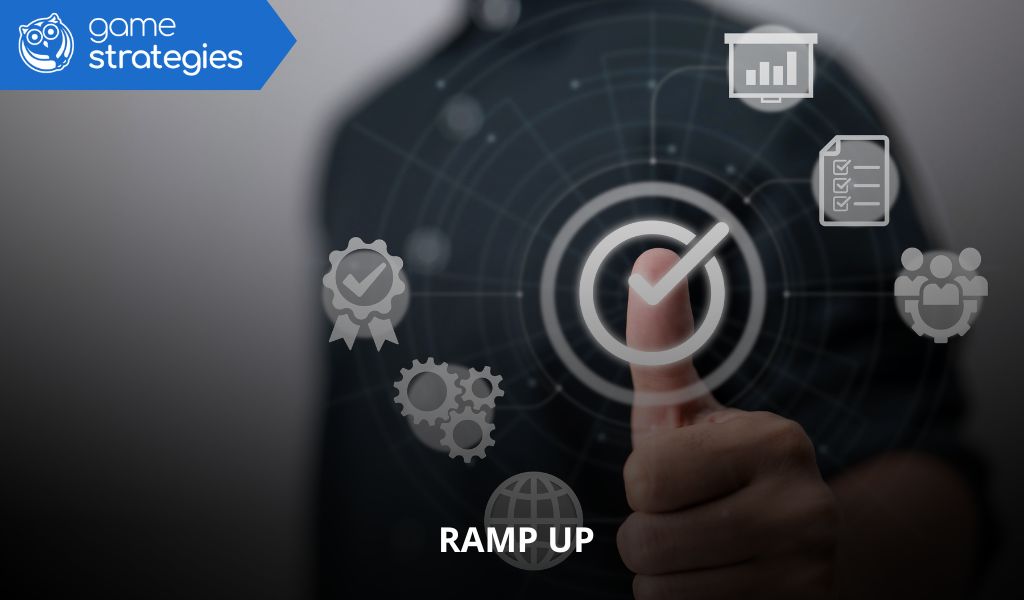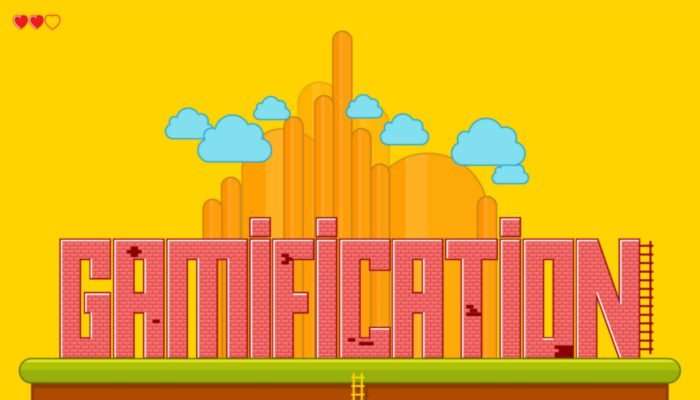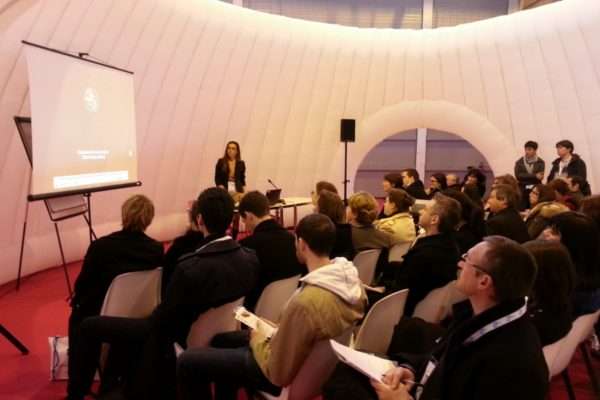In an increasingly automated and technology-driven job market, soft skills are more relevant than ever. Companies are looking for professionals who not only master tools and processes but who can also collaborate, adapt, lead, and resolve conflicts.
In this article, we reveal the most in-demand soft skills in 2025, why they matter, and how you can develop them through practical strategies and effective tools such as corporate gamification.
Discover how to embed them into your company’s culture with the help of Game Strategies, a leader in innovative training based on human-centred skills.
What are soft skills and why do they matter?
Clear definition and contrast with hard skills
Soft skills are the personal, social, and emotional abilities that enable professionals to interact, communicate, and act effectively in any workplace. Unlike hard skills—technical or academic knowledge—soft skills are not linked to a degree or certification but are developed through continuous practice and personal growth.
Examples of soft skills include:
- Effective communication
- Critical thinking
- Adaptability
- Leadership
Why companies value human skills more
Recent reports show that more than 90% of HR leaders prioritise soft skills in recruitment, promotion, and retention processes. Why?
- They are difficult to automate
- They strengthen team cohesion
- They directly impact productivity and workplace culture
This shift is accelerated by digital transformation, globalisation, and the intercultural adaptability modern organisations require.
The most in-demand soft skills in 2025
Effective communication and active listening
In hybrid and multicultural environments, being able to communicate clearly and practise active listening is key for coordination, productivity, and conflict resolution. Intercultural workplace communication is also critical for global companies.
Problem-solving and critical thinking
Professionals who think analytically, question assumptions, and propose innovative solutions gain a clear competitive edge. These soft skills are essential in dynamic or uncertain environments.
Adaptability, resilience, and a learning mindset
The ability to adapt quickly, embrace change, and commit to lifelong learning is one of the most sought-after soft skills in 2025. At Game Strategies, we integrate this into our training through educational gamification, where learning takes place in realistic simulated scenarios.
Time management and personal organisation
Knowing how to prioritise tasks, avoid distractions, and meet deadlines is more valuable than ever. Companies highly value professionals who can manage themselves effectively.
Emotional intelligence and collaborative leadership
Understanding your emotions, managing others’, and leading with empathy are the foundations of corporate emotional intelligence. The leadership of the future is not based solely on results, but on relationships, positive impact, and shared vision.
Why are these soft skills vital for companies?
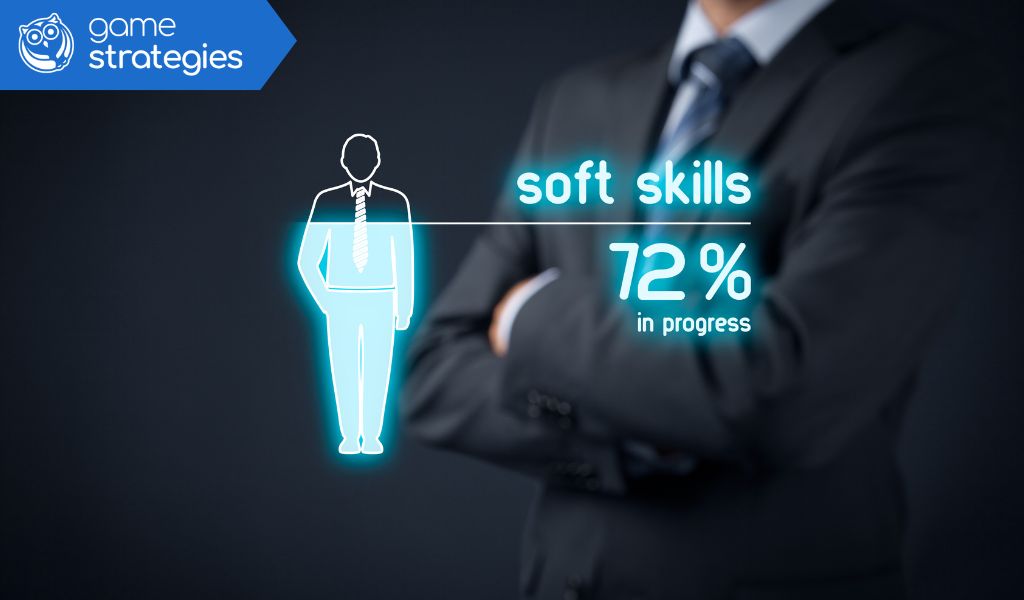
Driving productivity and teamwork
The soft skills of 2025 directly influence how teams collaborate, make decisions, and face challenges. Teams with strong communication, leadership, and emotional intelligence are more efficient and less prone to conflict.
Competitiveness in automated environments
While many technical tasks can be automated by AI or algorithms, soft skills remain uniquely human. They are what will set future professionals apart.
Talent retention and a positive organisational culture
Employees who feel their company values human development show stronger commitment. This boosts talent retention and builds a robust and positive organisational culture.
How to develop soft skills: practical strategies
Experiential training: simulations, team building, and role play
Soft skills are not developed solely through theory. They require practice, feedback, and realistic contexts. Experiential training is one of the most effective methods in the corporate environment. Carefully designed experiences allow individuals to test their communication, leadership, empathy, and problem-solving abilities.
- Simulations provide controlled—often virtual—environments where participants can act, make decisions, and learn from mistakes without real-world consequences.
- Role play helps professionals navigate interpersonal scenarios, strengthen empathy, and practise effective responses in complex situations.
- Team-building activities foster cohesion, strengthen shared leadership, and build collaborative cultures.
At Game Strategies, these methods are seamlessly integrated into our training experiences, creating meaningful and challenging environments where soft skills truly take root.
Continuous training with mentoring and structured feedback
The development of soft skills should not be a one-off initiative but an ongoing process. To have a real impact, these abilities must be reinforced over time, observed in practice, and supported with mentoring.
The most effective approaches combine:
- Short, practical, immediately applicable training sessions
- Mentoring programmes—peer-to-peer or reverse mentoring—that build trust and accelerate learning
- Structured feedback systems that provide clear, personalised improvement guidelines
This blend of microlearning, mentoring, and feedback ensures that training translates into observable behaviours in the workplace.
Cultural integration with gamification and development plans
Gamification makes it possible to integrate skill development into daily routines, not as isolated training sessions. With platforms like Game Strategies, you can create missions, challenges, and personalised development plans focused on strengthening essential soft skills.
The most in-demand soft skills for businesses in 2025 are not optional; they are decisive for recruitment, performance, and leadership.
For professionals, they provide a competitive edge. For companies, they form the foundation of resilient, innovative, and human-centred cultures.
The good news: these skills can be developed. With well-designed programmes, gamified training, simulations, and adaptive platforms, it is possible to integrate emotional, relational, and personal learning into the natural flow of work.
Would you like to implement a soft skills development plan in your organisation?
Discover how to do it in an engaging, measurable, and sustainable way with Game Strategies.
¿De cuánta utilidad te ha parecido este contenido?
¡Haz clic en una estrella para puntuarlo!
Promedio de puntuación 0 / 5. Recuento de votos: 0
Hasta ahora, ¡no hay votos!. Sé el primero en puntuar este contenido.


